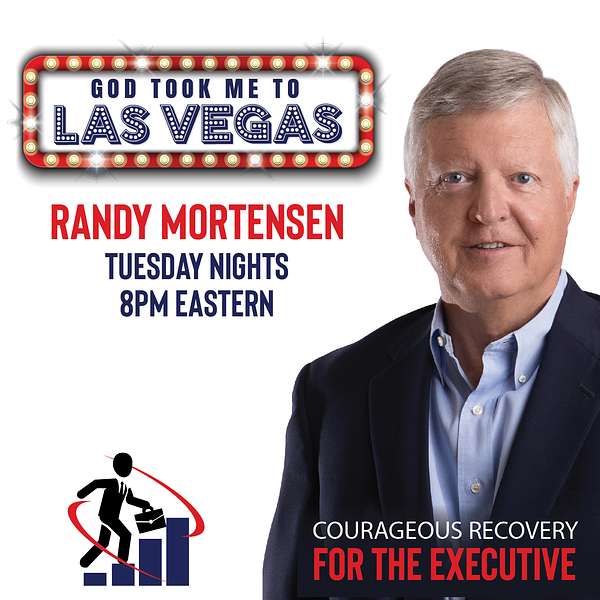
God Took Me to Las Vegas
My mission with the God Took Me to Las Vegas podcast is to save lives and allow the person to Reveal the Lifestyle Champion within them.There are many different types of recovery programs, they all are aimed at helping those battling substance use disorders to transition from being harmed to being clean and sober. Anyone who’s battling a compulsive or destructive behavior wants to be healthy and they desire to live a happy and productive life. Sadly, only 1 in 10 Americans with a substance use disorder receives treatment. Why?Because it’s not safe to come forward and admit your challenges. The stigma is fueling an American public health crisis and we need to “Crush the Stigma!”Substance use disorders are associated with discrimination and social disapproval – more than any medical condition. These same people are often isolated, outcast, and even imprisoned. Stigma isolates people, it discourages them from seeking help, and even leads some medical providers to resist delivering evidence-based treatment services.
God Took Me to Las Vegas
Episode 177 – Step 1 - There is a Purpose Behind Every Problem
Episode 177 – Step 1 - There is a Purpose Behind Every Problem
Step 1: We admitted we were powerless over our addictions and compulsive behaviors, that our lives had become unmanageable.
I know that nothing good lives in me, that is, in my sinful nature. I want to do what is right, but I can’t. Romans 7:18 (LRB)
It is not easy to admit powerlessness. All of us want to maintain the illusion that we can manage our lives on our own. Eventually, however, we must all face the fact that there is a gap between our intentions and our ability to carry them out. We may intend to stop drinking but find that we are unable to do so for more than short periods of time.
We may want to be more expressive of our deepest feelings but find ourselves emotionally withdrawn. All these gaps between our intentions and our actions are evidence of powerlessness.
Being powerless does not mean that we are incompetent or helpless–or that we have no power at all. It means that we cannot rely on our will alone to achieve wholeness and peace. Willpower alone is not powerful enough.
We see our powerlessness when we try to solve a problem through willpower (by determination, commitment, and trying harder) but find that the changes we achieve are only temporary.
We may try to control the drinking or drug use of someone we love, but trying, trying harder, and trying our hardest will not make us powerful enough to achieve our objective. Or we may promise not to say yes to additional responsibilities, only to find ourselves taking on more and more obligations.
If you have made promises, decisions, or choices and then found that your determination and commitment were not powerful enough to achieve the desired results, then you know what it is to experience powerlessness. If you have experienced fear or anxiety that you are unable to manage, you know what it is to be powerless.
If you hide behind defenses of one kind or another and cannot be at ease with yourself or others, you know what it is to be powerless.
The Apostle Paul talked about powerlessness when he said, “I have the desire to do what is good, but I cannot carry it out” (Romans 7:18). Paul realized that the solution to his problem would need to involve more than just increased willpower.
The central point of powerlessness is that willpower alone is not sufficient to enable us to make permanent changes. Trying harder didn’t work for the Apostle Paul, and it doesn’t work for us either.
acourageousrecovery.com